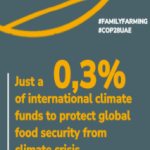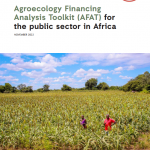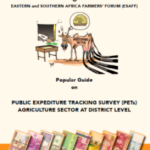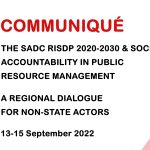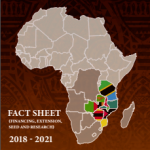Tanzanian Small farmers jubilant but say better budget possible
21/06/2010
Small farmers jubilant but say better budget possible
www.ippmedia.com/frontend/index.php?l=17705
By Rosemary Mirondo, The Guardian Newspaper
Small scale farmers have applauded the government for proposing an increase in funding for agriculture from 666.9bn/- in financial year 2009/2010 to 903.8bn/- in the coming one.
The rise, as appears in the 2010/2011 Budget estimates tabled in the National Assembly in Dodoma on Thursday by Finance and Economic Affairs minister Mustafa Mkulo, is equivalent to 8.1 per cent of the total budget of just over 11trn/-.
Representatives of small farmers from various parts of the country who met in Dar es Salaam yesterday also hailed the government for giving the sector the fourth priority in terms of budgetary allocations.
Elias Kawea, a member of the National Network of Small-Scale Farmers Groups in Tanzania (Mviwata), told journalists that the proposed budget was aimed at implementing National Strategy for Growth and Reduction of Poverty (MKUKUTA) plans as provided for, under Vision 2025.
“We wholeheartedly hail the government for choosing to make agriculture the fourth priority after education, health and infrastructure,” he said.
Kawea, a resident of Chamwino in Dodoma Region, said the proposed budget guarantees farmers access to farm inputs and subsidies, availability of reliable markets for their crops, irrigation as well as tax exemption on a wide range of dairy products.
“We are also impressed by the government’s decision to improve the management and control of public funds and reduce allowances in government ministries, departments and agencies,” he noted, adding: “If the funds are put to good use, we will have a surplus that could be used to improve many sectors, including agriculture.”
But he said the increase in the budgetary allocation to agriculture was still low relative to what was stipulated under the 2003 Maputo Declaration, which saw African countries Heads of State agree that the rise should reach 10 per cent by last year.
Kawea quoted statistics as showing that the growth of agriculture in Tanzania was still very slow “although this is a crucial sector that provides food and employment to millions of people in the country”.
Marcelina Kibena, the Mviwata chairperson for Morogoro Region, meanwhile said the lives of the majority of Tanzanians depended on small-scale farmers.
“We have heard the government table the budget estimates, all right. Accordingly, we underline the need to empower and encourage small-scale farmers so that they can support the nation’s development even more meaningfully,” she said
But Mathias Mtwale of Mvomero, Morogoro Region, was of the opinion that the proposed budget tended to favour the wealthy at the expense of the poor “because it wants tax exemptions mainly on equipment and other items that can only be bought by people with money”.
“When you talk of transporting crops like sugarcane, fresh flowers, sisal and tea as well as dairy products, you are obviously talking about sophisticated, harvesting and packaging machines, transportation of flowers and storing equipments. What small farmer can access such gadgets?” he queried.
Mtwale recommended that the zeal with which the government was moving to attract Tanzanians and foreign nationals to invest in agriculture also apply to small farmers.
In his remarks, Kiteto resident Apollo Chamwela urged the government to educate the people on modern farming and supply them with enough of the relevant inputs in good time, thus reining in dishonest middlemen usually preying on gullible farmers particularly in rural areas.
Under the 2010/2011 budget estimates, the government recommends major reforms in the agricultural sector, including removing Value Added Tax on the transportation of agricultural produce, implements, machines and equipment. This is meant mainly to boost farmers’ incomes.
SOURCE: THE GUARDIAN

















